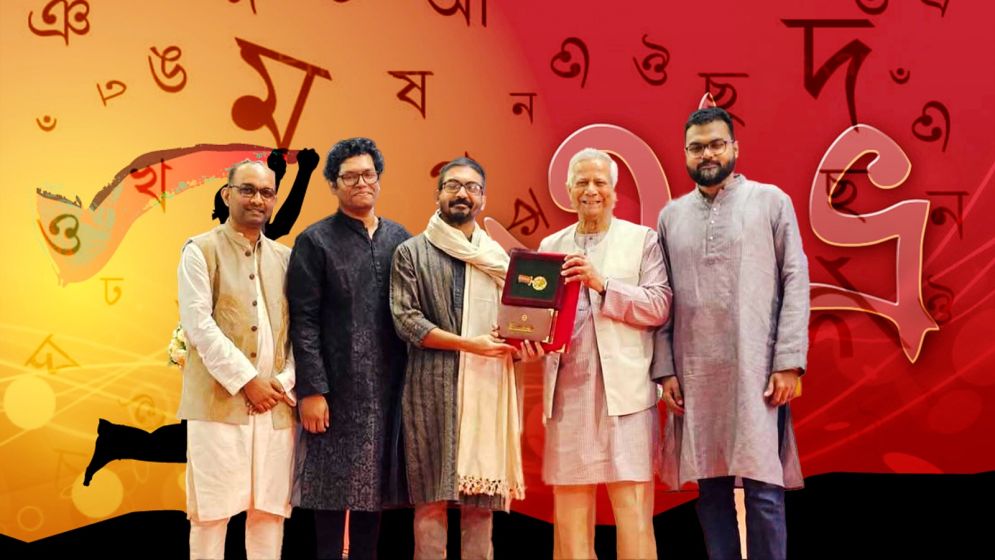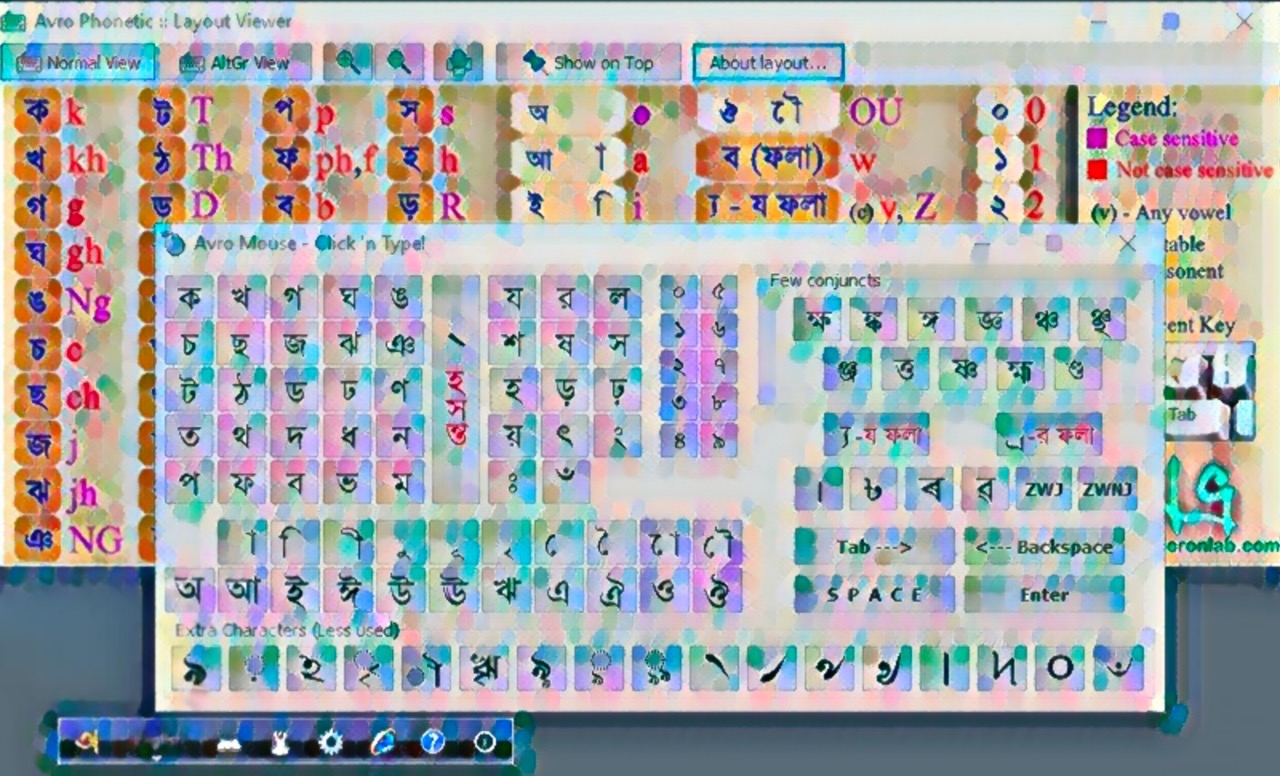Ekushey Padak marks a long-awaited recognition for the Avro team's role in digital transformation

On Thursday, when Chief Advisor Dr. Muhammad Yunus presented the Ekushey Padak—the second-highest civilian award—to Mehdi Hasan Khan and his team for their role in developing the Avro keyboard, it felt as though a long-overdue debt to the nation had finally been paid.
Avro, the most widely used Bengali keyboard layout, has become synonymous with the humble and soft-spoken Mehdi.
It was early on March 26, 2003, when Mehdi, then a medical student at Mymensingh Medical College, took a step that would not only change the way millions of Bangladeshis typed in Bengali but also revolutionize the country’s digital landscape.
Mehdi launched the first version of Avro, a Unicode-based keyboard software for Windows, with a mission to make Bengali typing accessible to all.
His goal was straightforward: to make the software free for the public and help preserve and popularize the Bengali language in the digital realm.
For years, typing in Bengali had been a cumbersome and often inaccessible task.
While commercial software like "Bijoy" was the standard, it was complicated, expensive, and not widely available.
Avro’s phonetic typing system made it possible for users to type in Bengali as naturally as they spoke, breaking down barriers for those unfamiliar with complex keyboard layouts.
The software quickly gained traction, even earning the endorsement of the Election Commission of Bangladesh, which adopted Avro for its National Identity Card project, replacing the commercial Bijoy software with the free, user-friendly alternative.
But this rise to prominence came at a cost. Mustafa Jabbar, the owner of Bijoy and CEO of "Ananda Computers," found himself on the defensive.
Avro's widespread use, which was free of charge, led to a significant financial loss for Jabbar—over five crore taka.
At the time, Bijoy still had a thriving market, with its "Bijoy Keyboard" in high demand. Avro’s success marked the beginning of the end for Bijoy’s dominance in the Bengali typing market.
Jabbar and his company quickly accused Avro’s creators of hacking and code theft, sparking a highly publicized dispute in Bangladesh’s tech industry.
After years of legal battles and mounting pressure, a resolution was reached.
On June 16, 2010, a pivotal meeting at the Bangladesh Computer Council’s office brought together many of the country’s top IT experts.
The investigation cleared Avro of all accusations, and a settlement was finally struck between Khan and Jabbar.
As part of the agreement, Avro removed the "Unibijoy" layout from its software, putting an end to the protracted dispute.

New era of digital transformation
In the end, Avro didn’t just transform Bengali typing—it also laid the groundwork for a new era of digital language preservation.
Its success demonstrated the profound impact of free and open-source software on the country’s technological future.
Mehdi, driven by his deep love for the Bengali language, made Avro available to the public for free.
Though he could have easily earned millions from the software, his passion for the language and his desire to make it accessible for everyone guided his decision to keep it free of charge.
Throughout this journey, Mehdi has always credited his success to his team, particularly his three colleagues—Rifat Un Nabi, Tanbin Islam Siam, and Shabab Mustafa—ensuring they received equal recognition for their contributions.
Over the years, Mehdi and his team have become national icons. Their unwavering dedication and patriotism, reflected in every stage of Avro's development, have garnered admiration.
Bangladeshi netizens, moved by their achievements, have taken to social media to call for official recognition of these unsung heroes.
In response to the public outcry, the Ministry of Cultural Affairs, under the Interim Government, earlier announced that Mehdi Hasan Khan, along with his three colleagues, will be awarded the Ekushey Padak in 2025.
This follows their earlier recognition in 2011, when the Bangladesh Association of Software and Information Services (BASIS) honored Team Avro with the Special Contribution to IT Award.
Mehdi’s relentless commitment to making Avro a world-class software has earned him international acclaim as well.
Microsoft has officially recognized Avro as an exemplary tool for language input, adding it to its online solution directory.
Additionally, Wikipedia has adopted Avro as its default Bengali input system for in-browser use.
—

